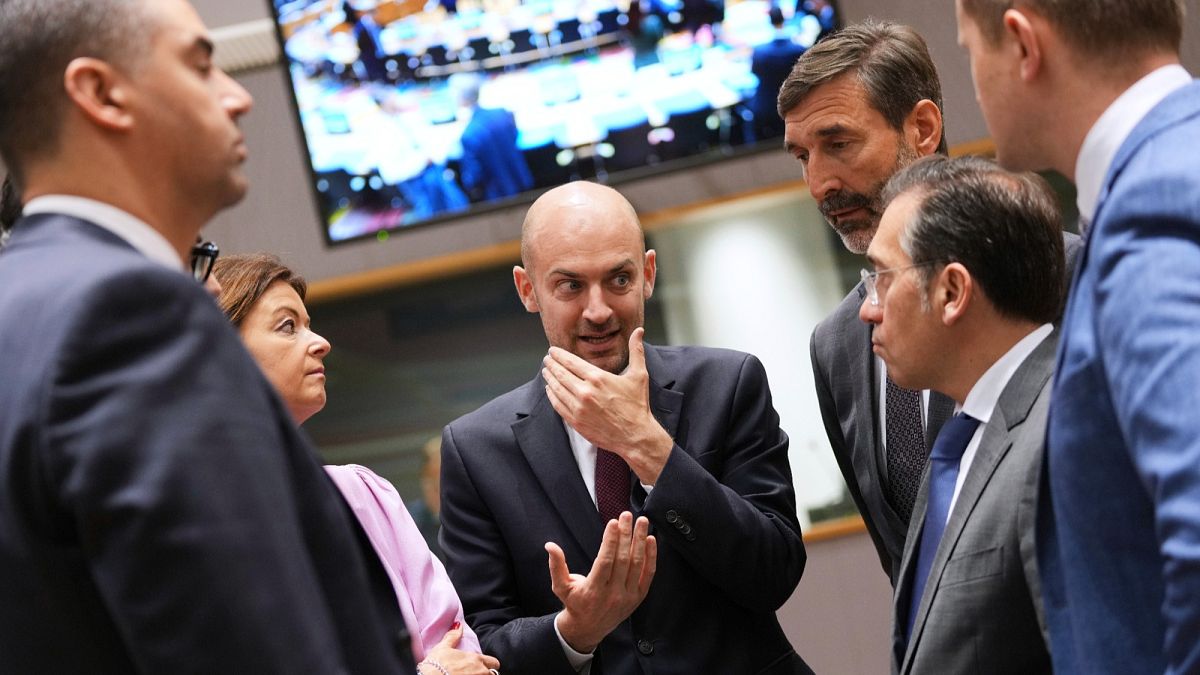

In the realm of international diplomacy and geopolitics, the past week has witnessed significant developments across various global hotspots. These events reflect efforts toward dialogue, the complexities of diplomatic relationships, and ongoing challenges that shape international relations.
In the European Union, discussions concerning potential sanctions on Israel have been a topic of considerable deliberation. The EU member states recently did not reach a consensus to suspend Israel from the Horizon Europe fund amid the ongoing conflict in Gaza. Germany and Italy, two leading EU nations, have expressed a preference for maintaining dialogue with Israel. This demonstration of continued diplomatic engagement underscores the EU’s careful balancing act between action and maintaining constructive relationships with its partners.
Turning to Cyprus, there is a sense of cautious reflection as the United Nations’ Special Representative, Colin Stewart, departed the island expressing disappointment over the progress of talks between parties. Stewart noted the challenging attitudes presented during the discussions, pointing to the complexities involved in resolving longstanding conflicts. This reiteration of enduring tensions in Cyprus highlights the need for persistent diplomatic engagement and empathy in navigating intricate political landscapes.
Meanwhile, in the backdrop of Eastern Europe, Russian President Vladimir Putin appears to be taking a measured approach towards a potential meeting with Ukrainian President Volodymyr Zelenskyy. This delay comes in response to a deadline set by former President Donald Trump for a proposed ceasefire. The strategy of delay reflects the multifaceted considerations at play in this geopolitical chess game where timing can be as critical as the dialogue itself.
In the Korean Peninsula, a gesture of goodwill has taken place as South Korea, under the leadership of President Lee Jae Myung, has taken steps to ease tensions with North Korea by removing loudspeakers that broadcast propaganda along the inter-Korean border. This action represents a practical measure aimed at fostering a conducive environment for renewed dialogue, following a period of stalled communications under previous leadership. The removal of these loudspeakers signals a desire for peace and understanding in a region fraught with historical tensions.
On another front, the US-India relationship is navigating a crucial crossroads. President Donald Trump has articulated a firm stance, demanding India cease its purchase of Russian oil or face increased tariffs. This ultimatum places Indian Prime Minister Narendra Modi in a difficult position, having to choose between securing affordable energy for his country and adhering to demands that strain India’s policy of non-alignment. The situation underscores the intricate balance nations often have to strike between economic needs and geopolitical loyalties.
In a world where varied geopolitical interests and national priorities intersect, these developments emphasize the nuanced nature of diplomacy and the continuous efforts worldwide to navigate complex international relationships. While challenges remain, the enduring commitment to dialogue and negotiation remains a cornerstone of global efforts toward peace and cooperation.
Source: {link}
